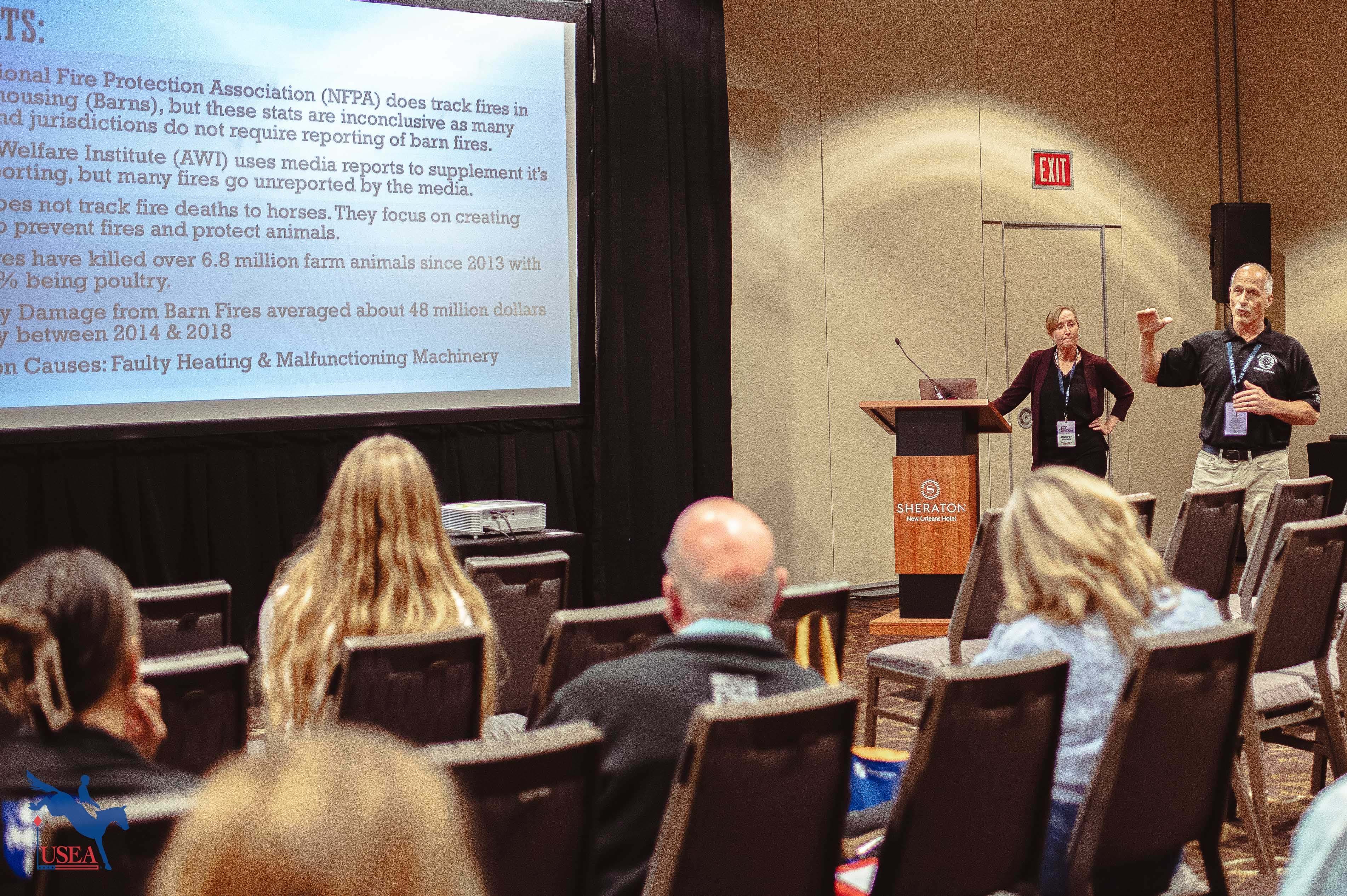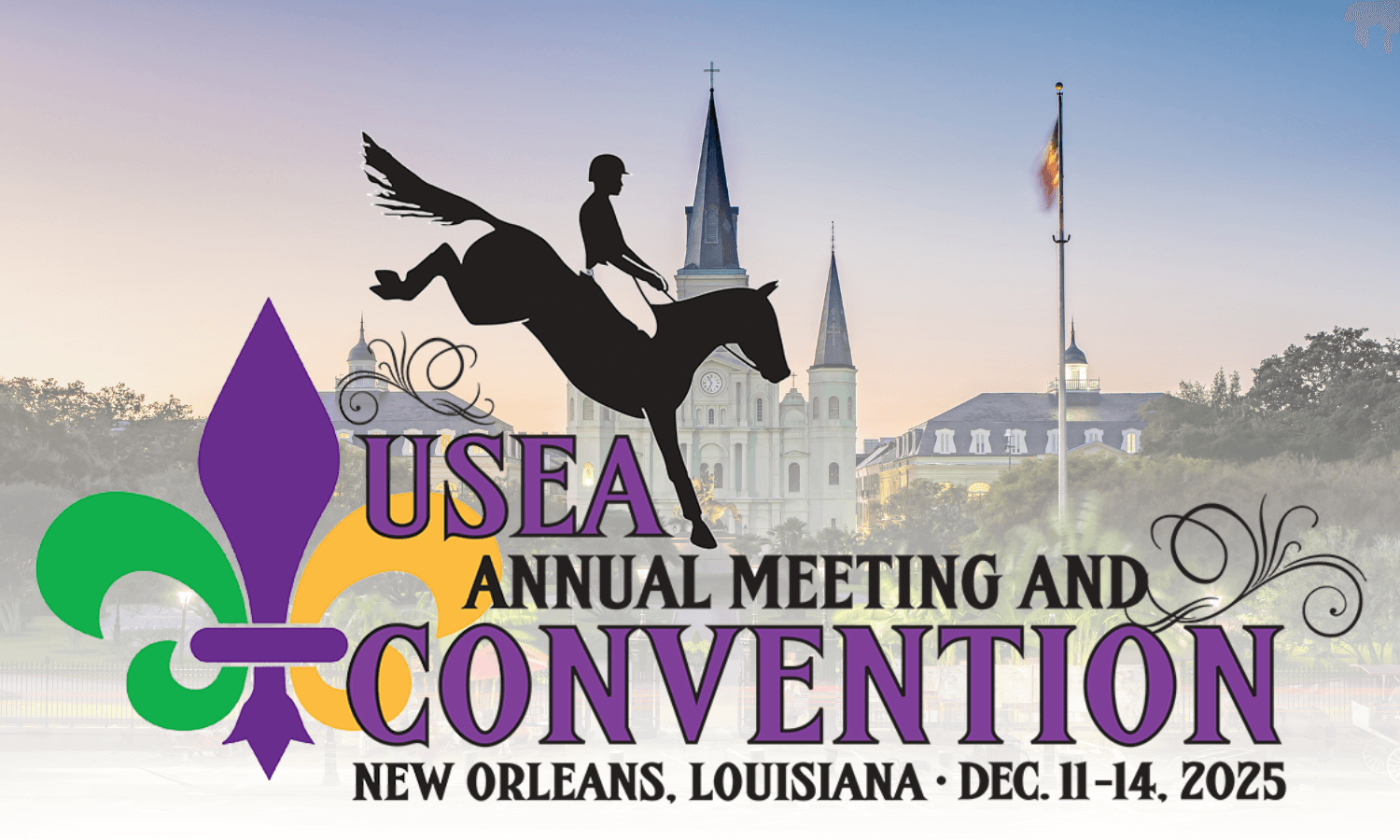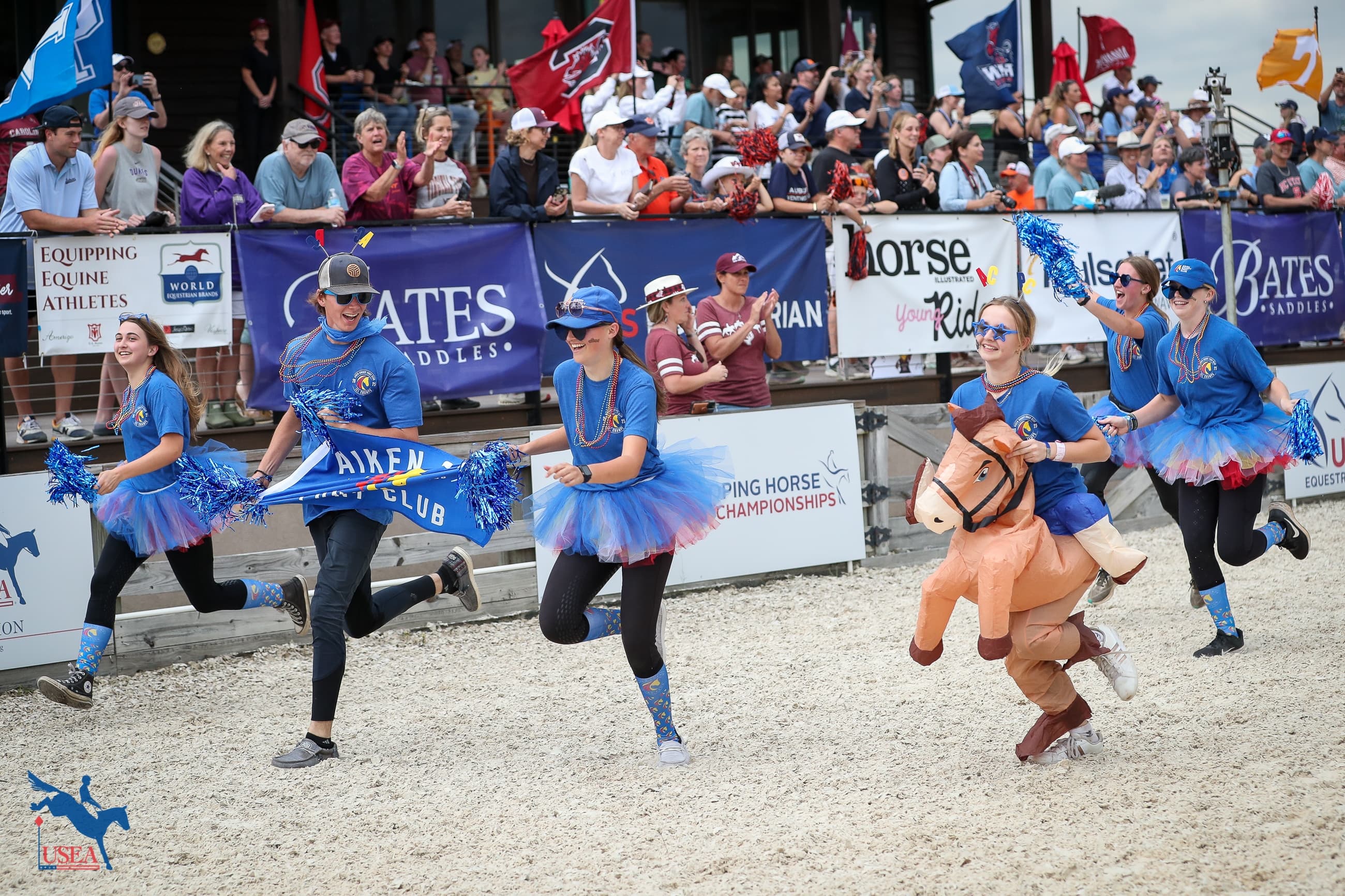A Trip Down Memory Lane with the U.S. Olympic Event Teams of Years Past
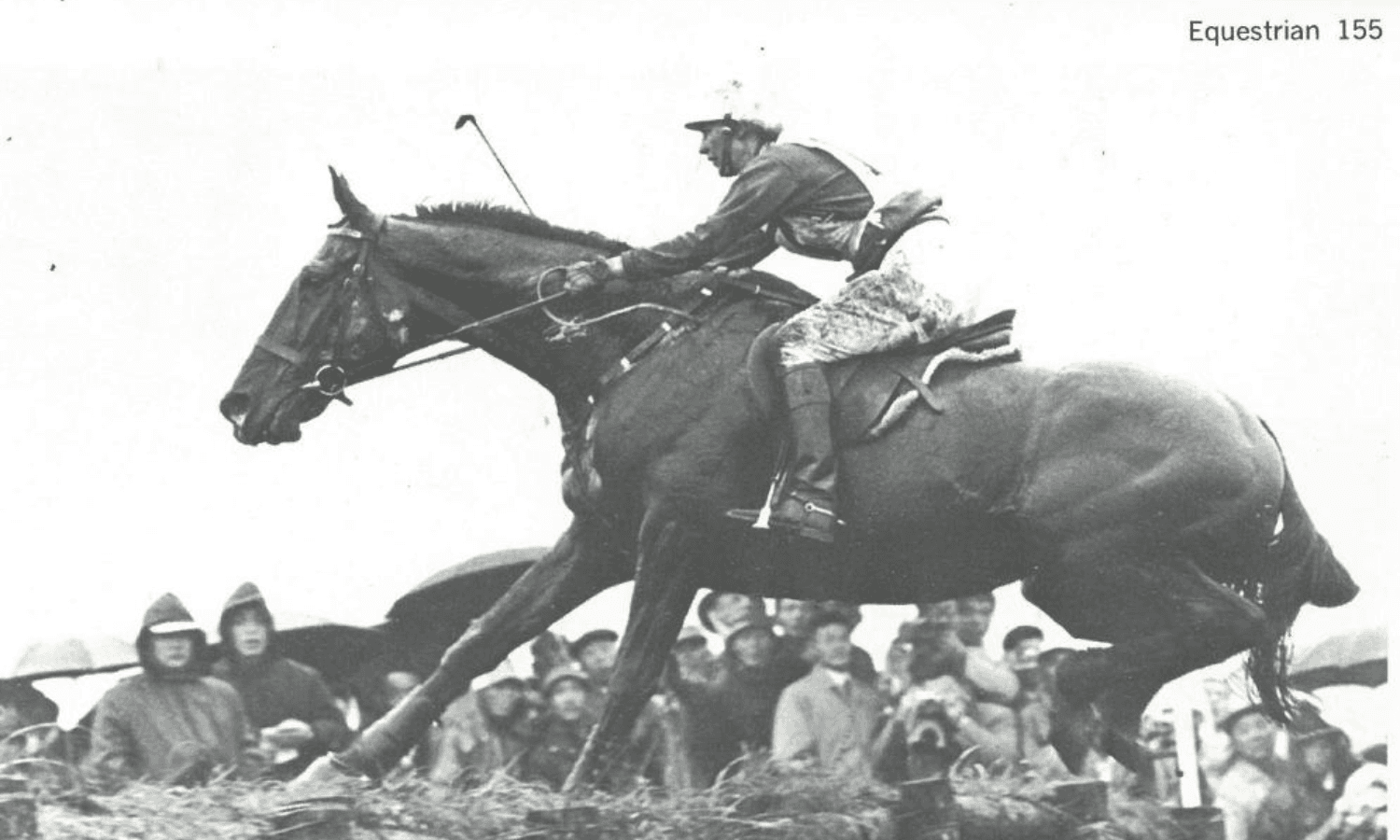
The hype around this summer’s Olympics in Paris, France, is building with each passing day! In preparation for the summer games, which take place Friday, July 26, through Sunday, August 11, we decided to take a walk down memory lane and revisit the performances of the U.S. eventing team at the Games in years past.
A Brief History of Eventing in the Olympics
Eventing has been a part of Olympic history since 1912 when the event debuted at the Stockholm Games in Stockholm, Sweden. At the time, the event was only open to amateur riders in the military as it was originally intended to test the cavalry on their fitness and suitability.
Since 1912, The U.S. has had teams representing the sport of eventing at the Olympic level 25 times, and that number doesn't count the 1980 “Alternative Olympics” which took place at Fontainebleau in France as a result of the U.S.’s boycott of the Moscow games due to the Russian invasion of Afghanistan.
The discipline itself began to see a serious shift in the 1940s after the development of the historical Badminton Horse Trials (England) in 1949, originally created by the 10th Duke of Beaufort as an opportunity for British riders to train for future international competitions. Thus, the traditional long-format was born.
As the Olympics were initially a military-centered event, women were not allowed to ride in any Olympic equestrian event until 1952, and it was a U.S. rider, Helena “Lana” du Pont, who would make history as the first woman on an eventing team at the Games at the 1964 Tokyo Games.
Medal Performances
Over the years, team USA has had great success at the Olympic level, acquiring 13 team medals and 16 individual medals, the first of which was earned at the 1912 Games where the discipline was introduced when the team of Lt. Ephraim F. Graham riding Connie, Captain Guy V. Henry aboard Chiswell, Lt. Ben Lear JR and Poppy, and Lt. John C. Montgomery with Deceive rode their way to the podium to earn team bronze in Stockholm.
The next team medal was awarded at the 1932 Los Angeles, California, Olympic Games when the U.S. won its first-ever Team Gold medal thanks to the efforts of the three-man team comprised of Capt. Edwin Y. Argo paired with Honolulu Tomboy, Major Hary D. Chamberlain and Pleasant Smiles, and Lt. Col. Earl F. Thomson riding Jenny Camp. Thomson also earned the individual silver that year.
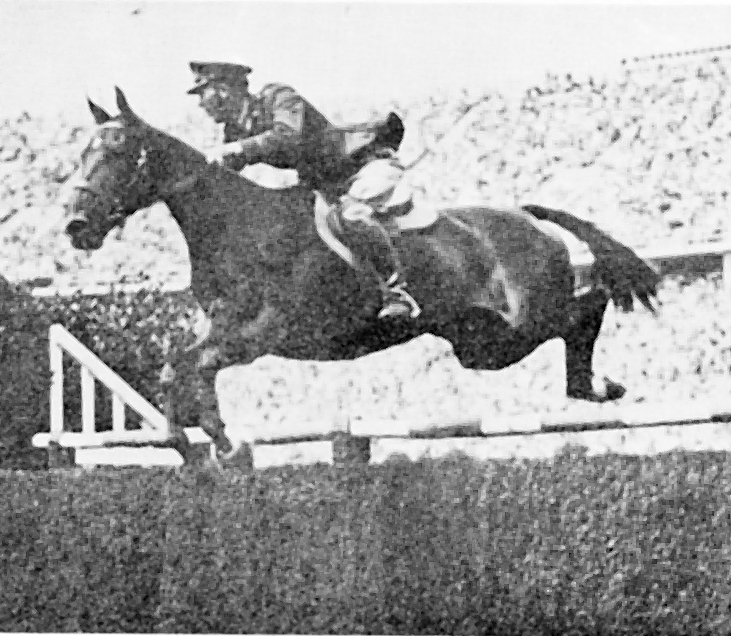
While there was no team medal earned at the 1936 Berlin Games, Thomson had repeat success at the Olympic level, earning another individual silver medal that year with Jenny Camp.
1948 would be the year that the U.S. eventing team would find themselves back at the top of the podium when Lt. Charles H. Anderson and Reno Palisades, Lt. Col. Frank S. Henry and Swing Low, and Thomson, this year aboard Reno Rhythm, would make their way to London, England, and earn team gold. Henry also went home with an individual silver medal in 1948.
A team bronze was in the cards at the 1952 Games in Helsinki, Finland, thanks to the team of three Olympic first-timers, Charles Hough Jr and Cassavellanus, Walter Staley JR and Craigwood Park, and J.E.B. Wofford and Benny Grimes.
As mentioned earlier, 1964 was a huge year for the sport of eventing and Team USA as du Pont made history as the first woman to ride in the Olympic Games. Du Pont also contributed to the team’s silver medal finish at the Tokyo, Japan, Games that year riding alongside Kevin Freeman with Gallopade, Michael Page and Grasshopper, and J. Michael Plumb with Bold Minstrel.
Freeman, Page, and Plumb would all return to the Olympic stage at the 1968 Games in Mexico City, Mexico, but this year joined by James C. Wofford riding Kilkenny. The team was awarded the silver medal, while Page rode Foster to an individual bronze placing.
The 1972 Munich Games in Germany resulted in a team silver finish for the U.S. thanks to the efforts of Bruce Davidson aboard Plain Sailing, Freeman and Good Mixture, Plumb and Free and Easy, Wofford and Kilkenny, and Jimmy Powers who traveled with Panchotown as the reserve pair.
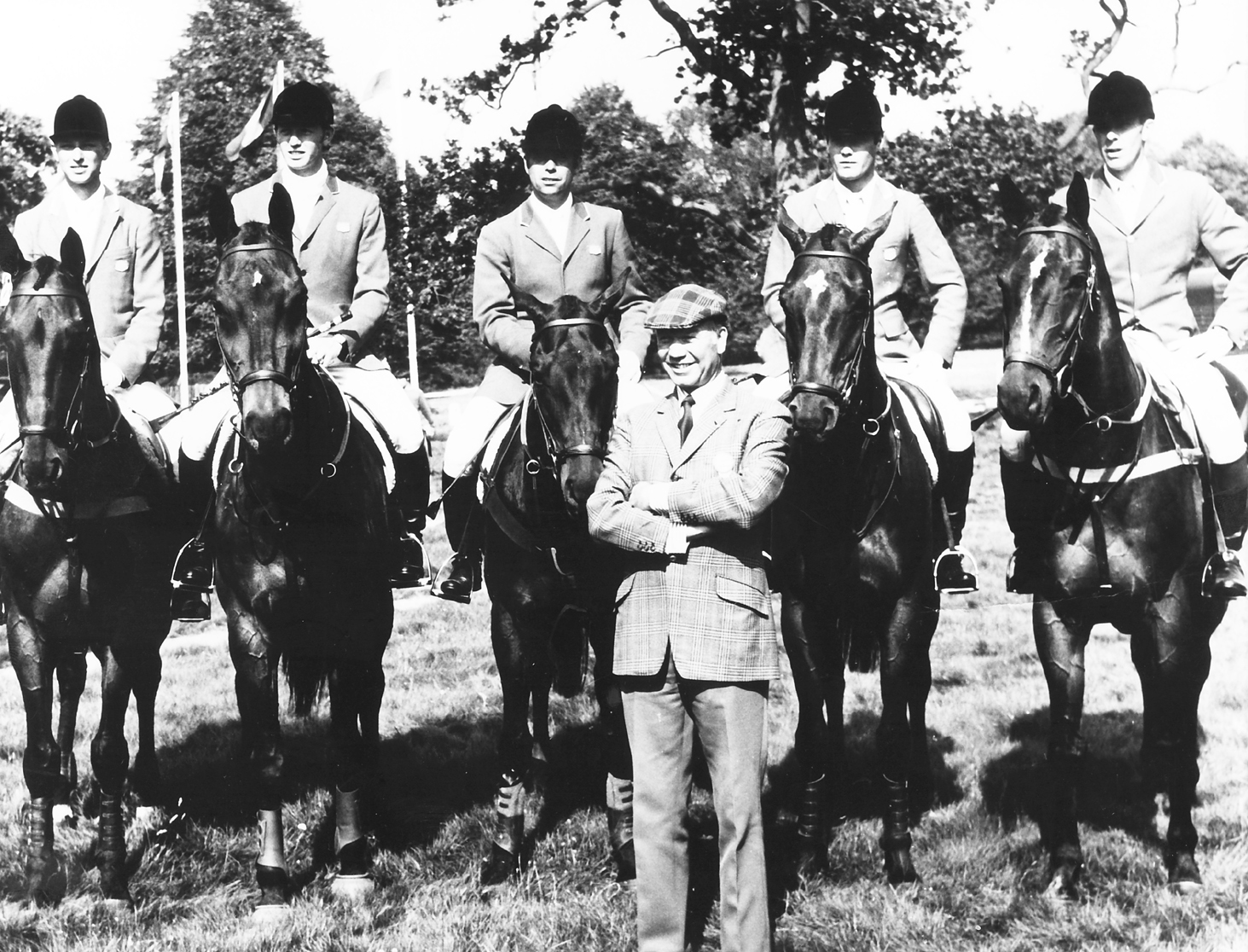
After several years without a team gold in hand, the U.S. team broke that dry spell in Canada at the 1976 Montreal Games. In addition to earning team gold, two U.S. pairs found themselves on the podium individually as well—Tad Coffin and Bally Cor earned individual gold, and Plumb rode Better and Better to individual silver. Coffin and Plumb were joined by Davidson riding Irish Cap and Mary Ann Tauskey aboard Marcus Aurelius.
Following the missing of the Moscow Games in 1980, the U.S. team returned to the Olympic stage as strong as ever in 1984 where they won the team gold medal on their home turf in Los Angeles, California. The 1984 team was made up of Davidson riding J.J. Babu, Torrance Fleischmann with Finvara, Plumb and Blue Stone, and Karen Stives aboard Ben Arthur. Stives and Ben Arthur earned individual silver that year as well.
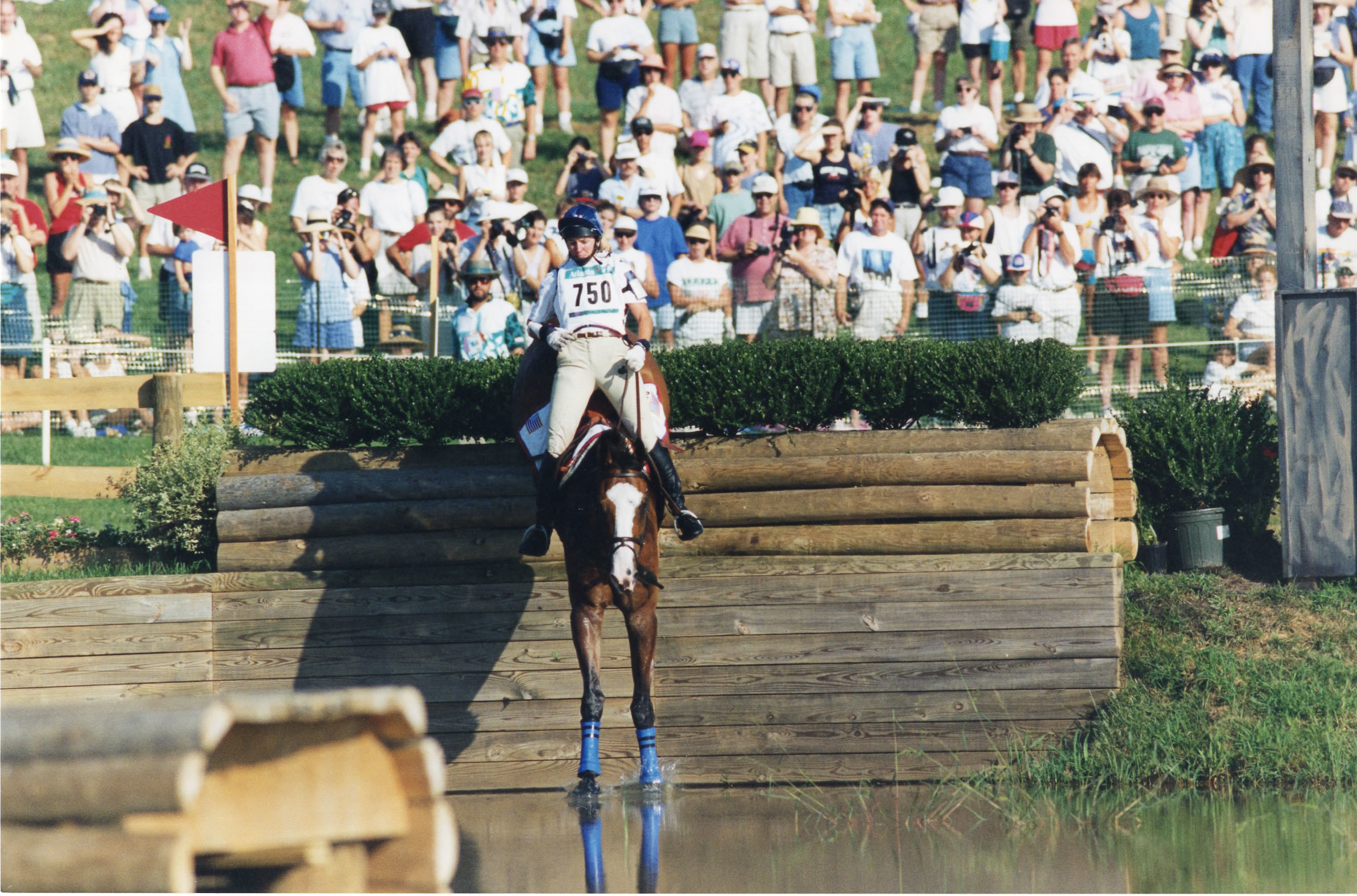
A few Olympic seasons passed without a medal, but the 1996 Olympics featured a new format that allowed for both team and individual competitions which meant Team USA had plenty of opportunities to excel for their country in Atlanta, Georgia. The team made up of Davidson aboard Heyday, Jil Henneberg with Nirvana, David O’Connor riding Gitledge, and Karen O’Connor with Biko, earned team silver that year. Kerry Millikin, who was riding Out and About in the individual competition, brought home an individual bronze.
The U.S. team made their way to Sydney, Australia, in 2000 for the Olympics and brought home both a team bronze medal and an individual gold that year. David's performance with Custom Made earned the individual gold, while it was the performances of Nina Fout with 3 Magic Beans, David and Giltedge, Karen and Prince Penache, and Linden Wiesman riding Anderoo, that contributed to the team bronze.
2004 was a groundbreaking year for eventing at the Olympic level as it was the first year that the discipline was offered without the steeplechase and roads and tracks phases. The U.S. team made their way to Athens, Greece, to compete across the new, shortened format and had success with one team medal and one individual medal that year. Kim Severson and Winsome Adante earned individual silver, while a team bronze was awarded to teammates Darren Chiacchia and Windfall, Julie Richards riding Jacob Two Two, Amy Tryon with Poggio II, and John Williams aboard Carrick.
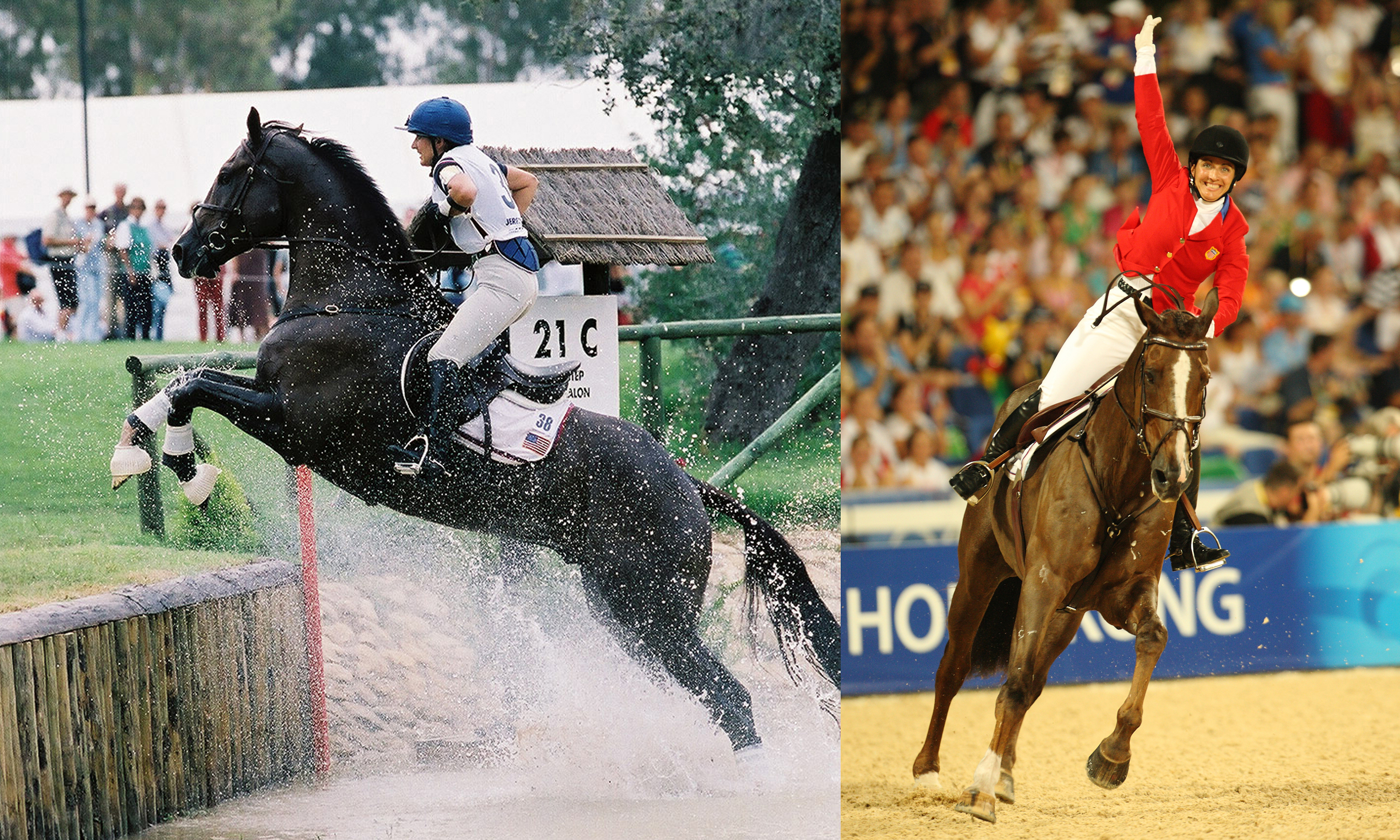
While the 2008 Games in Beijing, China, did not present the opportunity for the U.S. team to bring home a team medal, Gina Miles found herself donning the individual silver medal at the end of the competition thanks to her performance with McKinlaigh (the equestrian disciplines were held in Hong Kong).
2016 was another year without a team medal, but Phillip Dutton brought home an individual bronze from the Rio de Janeiro, Brazil, with Mighty Nice.
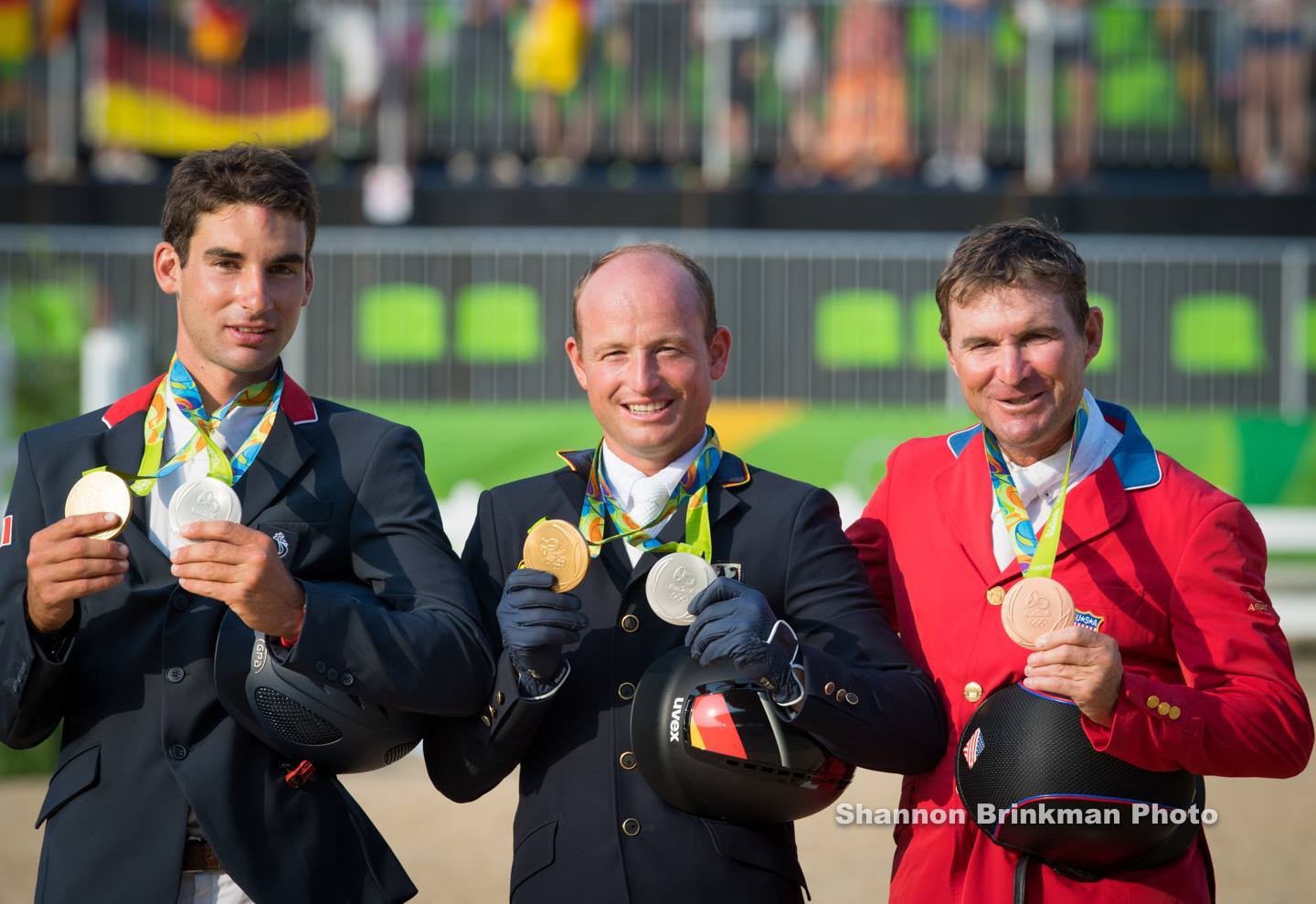
Hall of Fame
Since the introduction of the USEA’s Hall of Fame in 1999, 13 horses who have represented our great country on the Olympic stage have been inducted: Jenny Camp, The Grasshopper, Bally Corr, Plain Sailing, Biko, Kilkenny, Custom Made, Good Mixture, Irish Cap, Giltedge, McKinlaigh, Winsome Adante, and Out and About.
Likewise, 14 U.S. riders who have ridden for the U.S. at the Olympic level have also been honored with induction: Major General Jonathan R. Burton, J. Michael Plumb, Torrance Watkins, James C. Wofford, Michael Page, Karen Stives, Bruce Davidson, Kevin Freeman, David O’Connor, Amy Tryon, Lana Du Pont, Karen O’Connor, and most recently Brigadier General Harry D. Chamberlin.

